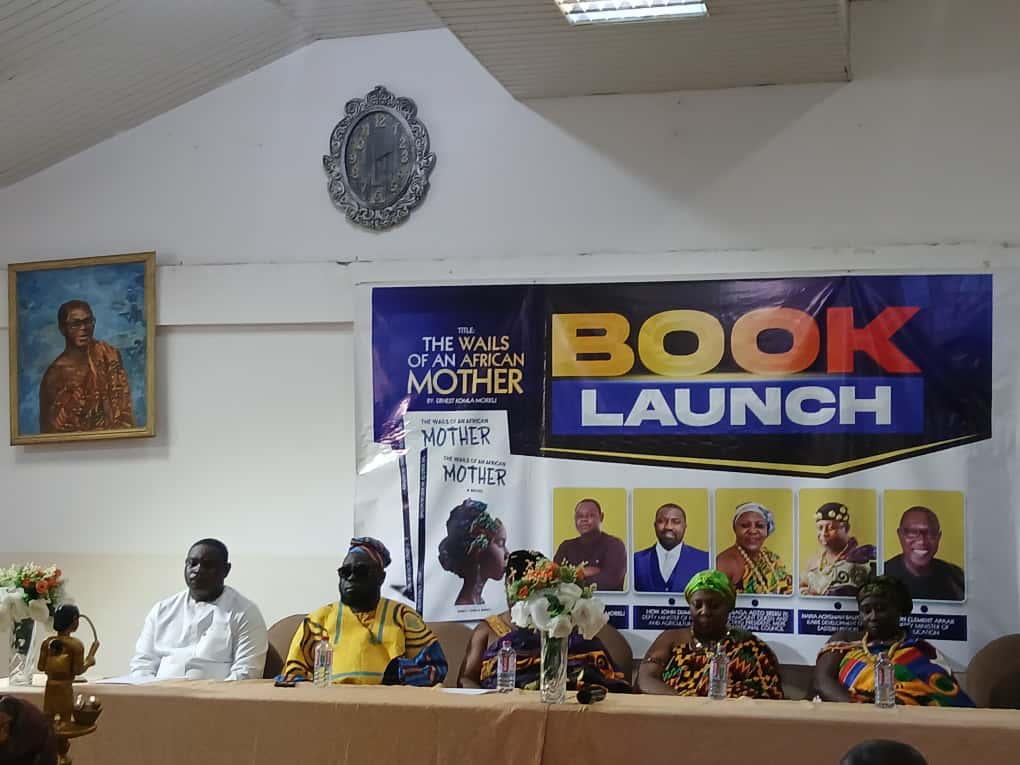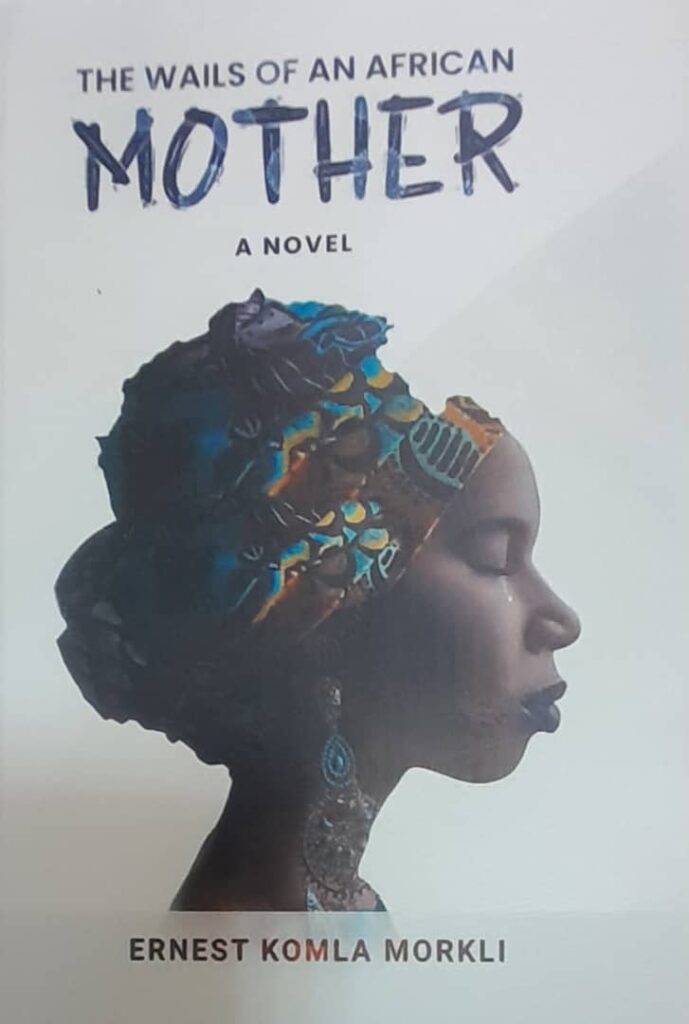Authored by Mr. Ernest Komla Morkli, the book titled “The Wails of an African Mother” mirrors the struggles of Africa and offers a torch for the future. It is a literary piece that echoes dignity, justice, and hope, but does not in any way reflect weakness or despair.
Speaking at the launch of the book on October 1, 2025, at Legon, the Author, Mr. Ernest Komla Morkli, emphasized that the cries in the book must not be mistaken for helpless lamentations. Rather, they are cries of resilience, dignity, justice, and hope for a brighter and more prosperous tomorrow.
He further stressed the indispensable role of mothers in Africa’s strength, drawing attention to how their sacrifices often sustain families, communities, and even nations. Yet, despite this, society frequently marginalizes them, overlooking their influence and underestimating their worth.
According to the author, the book is particularly designed for schools and young people.
He urged the youth to use it as a guide to learn from the mistakes of the past, confront the realities of the present, and prepare themselves to build a just and equitable future for the continent.
In an interview with the New Republic, Mr. Morkli highlighted that The Wails of an African Mother brings to light the struggles and silent sacrifices African mothers make daily to secure opportunities for their children, even in the face of poverty, poor leadership, and deeply-rooted societal challenges.
He linked these themes to Ghana’s present-day realities, citing issues such as superstition, corruption, and the persistent lack of sustainable jobs that continue to weaken development efforts.

The Author further explained that the book goes beyond merely pointing out problems. It also proposes practical solutions. Central to these solutions, he noted, is education and a deliberate change in mindset.
Through the narrative, two young men who study abroad return to their homeland, not to build factories or pursue personal wealth, but to establish an NGO.
Their aim is to empower citizens with knowledge, to demand accountability from their leaders, and to break the cycles of exploitation and ignorance.
He indicated that the book is written to provoke action, particularly among young people. It is a call on them to rise and demand better governance, insist on sustainable job creation, and challenge systems that continue to drag Africa behind.
Echoing the sentiments of the Author was the Chairman of the book launch, Nana Agyeman Baffour. Nana described Africa as a continent that symbolizes a question mark, both geographically and metaphorically.
He explained that the very shape of the African map resembles a question mark, and that this symbolizes the puzzling and often troubling developments that occur on the continent. According to him, the book courageously spells out these contradictions and provides sound solutions to them.
Nana further emphasized the importance of history in shaping values, declaring, “If you don’t know your history, you don’t know your values.”
He stressed that the book is not only a Ghanaian or African tool but must cut across the continent and extend into the global world, enabling people everywhere to appreciate the true meaning of the wails of an African mother.
He therefore urged the Ghana Education Service (GES), to consider incorporating the book into the educational curriculum so it can be used as a teaching and learning tool across schools in the country.
Reviewing the book, Dr. (Mrs.) Joyce Anku Morkli, wife of the Author, shared some of the hurdles they endured before successfully bringing out the remarkable literary piece.
She described the book as one that goes beyond the boundaries of storytelling. In her words, “The Wails of an African Mother is a mirror, a history lesson, and a call to action. It does not merely tell stories; it compels reflection and transformation.”
She noted that each of the fourteen chapters of the book is carefully structured as a powerful educational tool. The chapters, she explained, blend real-life experiences, cultural lessons, and historical reflections into a narrative that is both thought-provoking and inspiring.
Echoing the central spirit of the book, the reviewer reiterated that the Wails of an African Mother are not cries of weakness. They are cries of strength, dignity, and the beginning of justice.
They are wails that call for the restoration of values, the defense of truth, and the awakening of a generation that dares to dream of a better Africa.


